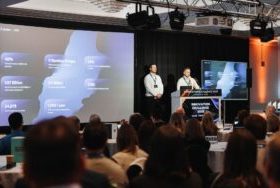
Gartner projects that more than 85 % of organisations will operate on a cloud-first footing by 2025, a seismic shift that pushes core ERP workloads, including Oracle Fusion Cloud, into rapid-release territory (TechRepublic).
This comprehensive playbook equips UK business leaders with actionable strategies to overcome Oracle Fusion testing bottlenecks while building a sustainable automation framework that drives measurable business outcomes.
A quick look
Oracle makes that velocity tangible: every quarterly Critical Patch Update (CPU) lands in your test pod and, exactly two weeks later, rolls into production.
In that 14-day window UK enterprises must validate:
- statutory UK payroll logic (HMRC RTI, P60, P11D)
- revenue-impacting order-to-cash flows
- every mission-critical integration, from Workday to legacy E-Business Suite
Failure isn’t cheap. A 2024 Splunk/Oxford Economics study estimates global downtime losses at $400 billion annually, equivalent to approximately £160 million per Global 2000 organisation.
Real-world data points that matter
- Oracle’s immovable 14-day window – Oracle applies quarterly updates to test pods two weeks before production, creating a fixed regression sprint every Jan / Apr / Jul / Oct.
- Cloud-first is now the norm – Gartner projects that 85 % of organisations will be cloud-first by 2025, making SaaS-style release velocity an executive reality.
- Downtime is brutally expensive – A 2024 Splunk + Oxford Economics study estimates US $400 billion a year in lost revenue for Global 2000 firms when critical systems go dark.
- Autonomous testing is on the horizon – IDC predicts that by 2028 GenAI tools will write 70 % of software tests, dramatically shrinking the manual workloads.
- Analysts see a “seismic shift” toward AI-driven QA – Forrester’s 2024 coverage of Continuous Automation & Testing notes that customers now expect generative-AI capabilities to make testing “smarter, faster, and more efficient.”
- Opkey results prove the upside today – In a published case study, Gap cut costs by $900K after adopting Opkey’s no-code test automation platform.
Together, these data points demonstrate why UK enterprises can’t afford to continue with manual Oracle Fusion testing and how Opkey-style automation is already delivering measurable returns.
The common ERP bottlenecks
When it comes to the five bottlenecks UK organisations report most often, these are the ones that are reported:
- Compressed patch window. Two weeks to test every integration, custom report, and approval workflow.
- Payroll & HMRC complexity. P60, P11D, and FPS filings rely on custom configuration; one mismatch triggers manual rework.
- Coexistence headaches. Parallel EBS/Fusion estates double regression scope until R12.2 or cloud migration completes.
- Resource squeeze post-hypercare. SMEs fall back into day jobs; testing becomes an “evening-and-weekend” task.
- Tribal knowledge locked in spreadsheets. Critical scripts live in SharePoint silos—version control nightmares that slow onboarding.
A phased automation framework that scales
Phase 1 – Assess & baseline
- Map “must-pass” flows. Prioritise revenue, compliance, or customer-facing processes.
- Catalogue integrations. Document API endpoints, middleware hand-offs, and data flows.
- Risk-rate each process using impact × change frequency.
Phase 2 – Select fit-for-purpose tooling
Generic Selenium or Playwright scripts break on Oracle’s dynamic IDs. Look for:
|
Evaluation criterion |
Why it matters |
|
Oracle-aware locators |
Handles Fusion Adaptive UI & Forms objects. |
|
Pre-built test libraries |
Accelerates coverage (Opkey ships >5 000 Fusion assets). |
|
Self-healing scripts |
AI maintenance keeps pace with Oracle UI changes. |
|
No-code authoring |
Empowers payroll, finance and supply-chain SMEs to extend tests. |
The leading option for Oracle test automation today is Opkey, which offers UK reference clients and Oracle test accelerator content.
Phase 3 – Pilot & prove value
- Start with a single module (e.g., UK Payroll) or a cross-module flow (hire-to-retire).
- Establish a Centre of Excellence blending IT, QA, and business power-users.
- Track cycle-time, defect escape rate, and user effort for a clean before/after.
Phase 4 – Industrialise & improve
- Expand coverage by risk tier, not by sheer script count.
- Integrate automated runs into CI/CD or Oracle’s Update Assistant schedule.
- Review dashboards after each CPU; prune flaky tests and add new edge cases.
How to measure success (KPIs you can take to the board)
|
Metric |
Target |
Why it resonates |
|
Automated coverage of critical flows |
≥ 90 % |
Shows risk is truly under control. |
|
Execution speed |
≥ 8× faster than manual |
Frees the 14-day patch window. |
|
Maintenance effort |
≤ 20 % of prior manual time |
Validates self-healing claims. |
|
Early-defect capture |
60–70 % more issues caught pre-prod |
Direct link to stability. |
|
Time-to-benefit for each Oracle release |
40–60 % faster go-lives |
Converts to opportunity cost avoided. |
|
Payback period |
6–12 months on tooling spend |
Satisfies CFO scrutiny. |
Future-proofing your Oracle test strategy
- AI-driven authoring generates risk-based test sets, shrinking script-creation overhead.
- Predictive analytics flag brittle integrations before the CPU even lands.
- Continuous testing hooks slot into DevOps pipelines, enabling daily sanity runs on your stage pod.
- Edge-to-cloud observability integrates Fusion telemetry with Splunk/Ops tools to correlate test failures and runtime errors.
Oracle’s roadmap will add new modules and industry capabilities (e.g., Sustainability, Field Service). An adaptable automation fabric ensures your team validates them without needing additional headcount.
Building the business case
- Quantify the “now” – labour spend on manual scripts, overtime, consultant days, and cost of past outages.
- Cost the “to-be” – platform licences, enablement, and incremental cloud resources.
- Model benefits – cycle-time gains, risk-adjusted downtime avoidance (plug in Splunk’s £160 m average for context), and faster monetisation of new Fusion features (IT Pro).
- Align stakeholders – CFO (cost & risk), CIO (tech stack fit), business VPs (agility), Compliance (audit trail).
A 12-month roadmap for UK organisations
|
Months |
Milestones |
|
1–2 |
Baseline processes, select tool, form governance squad. |
|
3–4 |
Pilot one high-stakes flow (e.g., UK Payroll year-end). Show ROI. |
|
5–8 |
Extend to Finance, Supply Chain; plug tests into pipeline; publish dashboards. |
|
9–12 |
Hit ≥ 90 % coverage of tier-1 flows, embed quarterly retrospectives, budget for AI add-ons. |
Turn Oracle Fusion Testing into a Competitive Edge
Oracle Fusion’s quarterly update drumbeat isn’t slowing down, and UK compliance pressures aren’t easing. Yet testing can shift from a costly, last-minute scramble to a repeatable engine for speed and resilience, if you automate with intent.
- Start with outcomes, not scripts. Anchor every automation decision to business objectives: faster patch adoption, airtight audit trails, and continuous user productivity.
- Select technology built for Oracle. Generic tools struggle with Fusion’s dynamic UI and UK-specific payroll nuances; platforms like Opkey ship pre-built, self-healing libraries that cut setup time and maintenance overhead.
- Treat change management as a first-class workstream. Empower business SMEs through no-code test design and clear dashboards, so quality becomes everyone’s metric, not just IT’s.
UK organisations that follow this blueprint are already seeing 40–60 % shorter release cycles, fewer escaped defects, and stronger audit readiness. By combining a strategic automation framework with Opkey’s Oracle-aware accelerators and change-impact analytics, you move beyond “keeping the lights on” to unlocking rapid innovation, without sacrificing control.
In short, Oracle Fusion test automation is no longer a technical nice-to-have; it’s a strategic imperative. Adopt it deliberately, partner with the right tooling, and turn every quarterly patch into an opportunity to outpace the market.
Read more:
Oracle Fusion Testing: The UK Leader’s Playbook for Automation






